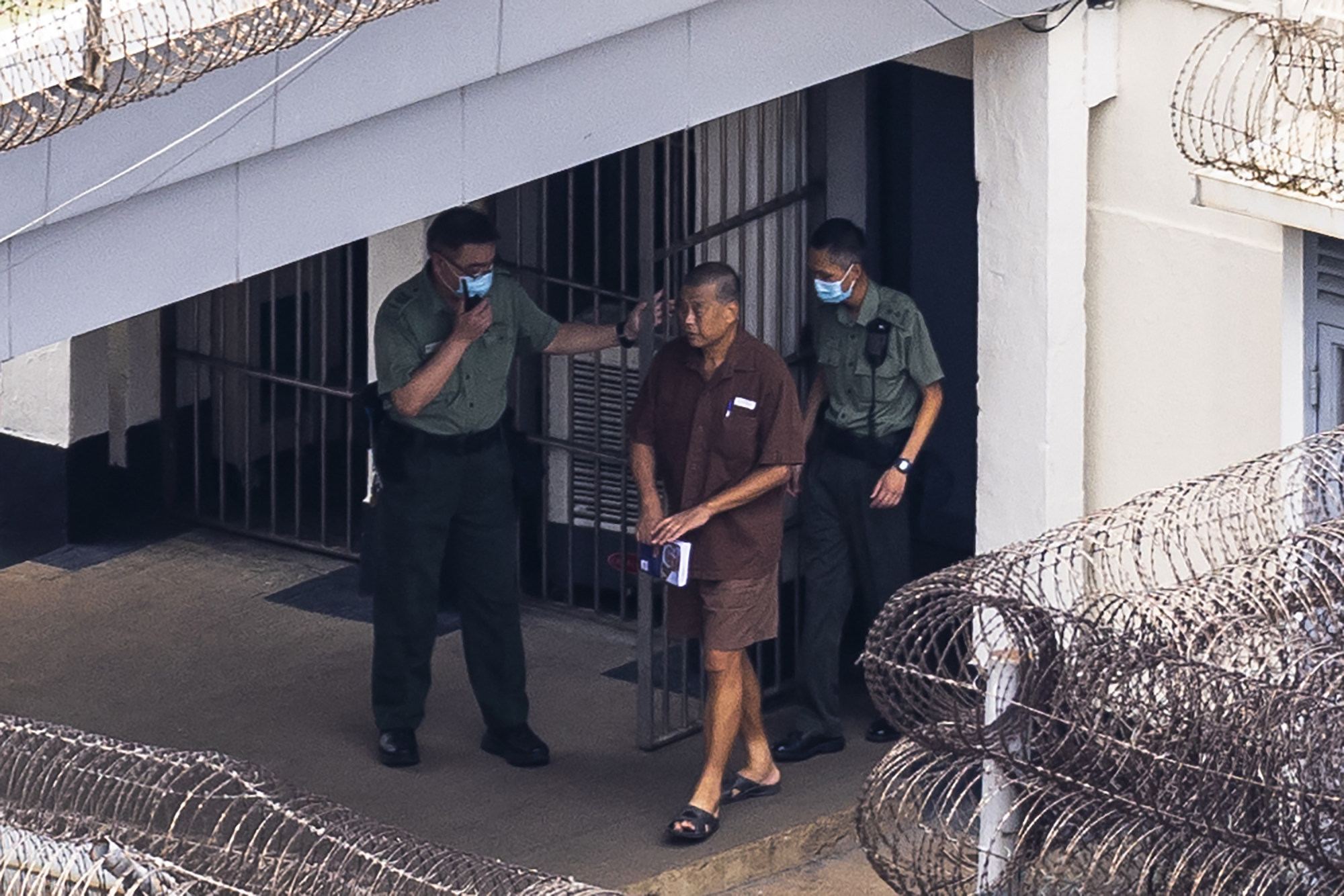
National security trial of Hong Kong tycoon Jimmy Lai postponed yet again so judge can wrap up separate subversion case
- High Court decides to adjourn media mogul’s trial for third time to allow one of three presiding judges to hear evidence for separate subversion case
- Apple Daily founder will have spent more than three years behind bars by time he stands trial on December 18
The High Court on Friday decided to adjourn the trial, marking the third such occasion since two previous requests were granted to wait for Beijing’s interpretation of the national security law.
Hong Kong court grants partial victory to Jimmy Lai, 6 others in protest appeal
The trial, originally expected to last 30 days, may now take at least 80 days to complete, according to the court’s latest estimation.
The prosecution is also looking to call a university professor to the witness box to explain the legal effects of targeting the city’s officials with international sanctions.
The Post understood the proposed witness was Wang Guiguo, a chair professor of Chinese and comparative law at City University and the husband of pro-Beijing lawmaker Priscilla Leung Mei-fun.

Defence counsel Steven Kwan Man-wai said his side intended to challenge the admissibility of Wang’s evidence, including comments about the impacts on national security related to Lai’s alleged transgressions.
The lawyer said Lai might submit an alibi in relation to the sedition offence, adding the tycoon was not in Hong Kong when an alleged agreement to print and distribute seditious publications was reached among Apple Daily staff.
Judge Lee pointed out that the prosecution appeared to have laid the sedition charge after the six-month statutory time limit for filing a criminal complaint had expired.
Prosecutor Anthony Chau Tin-hang said his team had “informed” the lower magistrate’s court of their intention to include the sedition charge just within the six-month period, but Lee noted the charge was not formally presented to the magistrate in time.
“There seems to be reasonable arguments in this regard … I don’t think that is a very good explanation,” the judge said.
The court is expected to first deal with issues concerning its jurisdiction to hear the sedition complaint when the trial begins in December.
Hong Kong judge orders Jimmy Lai to pay costs for two ‘unarguable’ legal challenges
The National People’s Congress Standing Committee, China’s top legislative body, later ruled that Hong Kong’s Committee for Safeguarding National Security was entitled to determine whether London-based King’s Counsel Timothy Owen could take up the case.
The latter committee, which is chaired by Chief Executive John Lee Ka-chiu, decided that Owen’s representation would pose a national security risk, effectively barring him from taking part in Lai’s trial.
